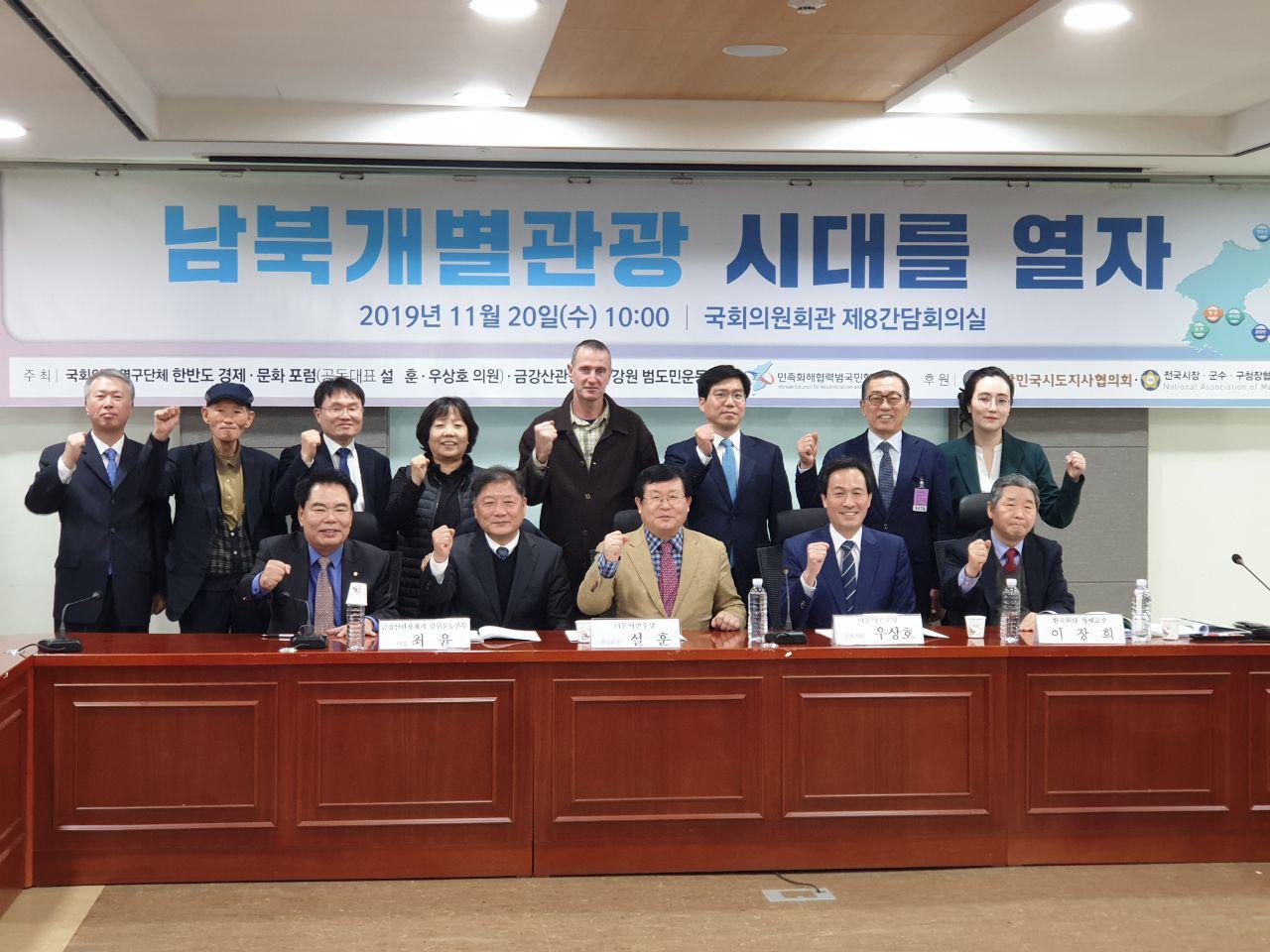Individual Tourism remains an unlisted sanction for North Korea; however, vaguer sanctions, like cash transactions, can provide uncertainty for these individuals and operators. South Koreans, although prohibited by their government without the approval of the Unification Ministry, are technically allowed the idea to travel to North Korea as individuals. It is within their international human right. But the Cold War National Security Act flings an impassable net over this as it prohibits all means of contact by a southerner with a northerner, be it human, electronic, or with paper. Meanwhile, the Unification Ministry, rather than providing a connection, presents a last extra hurdle in a long grind for South Korean individuals and civic groups during their application process to go north. Should South Koreans be forced to act through this ministry? Cannot existing ministries collectively provide this process more easily? These were the main topics we discussed at Wednesday’s seminar on individual tourism in North Korea. Attended by lawyers, national assembly members, academics, tour operators, and the public – the MoU official got a bit of a grilling, especially from the unhinged public. Not a popular ministry, more an appendix it seems. All due respect to them, but I did agree.
개인에 의한 북한 관광은 공식 제재 목록에 빠져 있다; 하지만 현금 거래와 같은 모호한 각종 제재로 인해 북한을 여행하려는 개인이나 여행사에 불안한 상황이 조성된다. 통일부 허가를 받지 않은 한국인의 북한 여행은 정부가 금지하고 있지만, 엄밀히 따지면 국민 개인 자격으로 하는 북한 여행은 허용되어 있다. 국제 인권의 범위 내에 있는 것이다. 그러나 냉전 시대에 제정된 국가보안법은 인권에 촘촘하고 빠져나갈 수 없는 그물을 뒤집어 씌어놓고 있다. 이 법은 그것이 대면이든, 전자적이든, 우편이든 모든 형태의 남•북 접촉과 교류를 금지하고 있다. 한편, 통일부는 개인이나 민간단체를 북한과 연결을 해주기는커녕, 북한 여행 허가를 위한 길고도 복잡한 절차에 마지막 추가 걸림돌이 되고 있다. 왜 통일부를 반드시 거쳐 가게 하는가? 기존의 여러 관련 부처가 함께 나서서 절차를 간편하게 할 수는 없는 것일까? 이런 질문들이 바로 수요일에 열린 북한 개별 관광에 관한 세미나에서 우리가 토론한 주요 안건이었다. 세미나에는 변호사, 국회의원, 학자, 여행사와 일반인이 참석했다. 참석했던 통일부 관리는, 특히 거침없는 일반인들로부터, 많은 질문 공세를 받았다. 중요한 부처라기보다 쓸모없다는 인상을 주었다. 참으로 미안한 말이지만 나도 이에 동의했다.






















